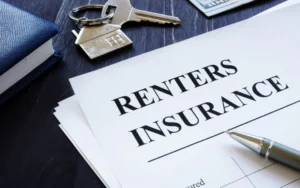Just like listings on Airbnb or HomeAway, short-term rentals are becoming increasingly popular. Whether you rent your home for a few days or a few weeks, protecting your investment and yourself is crucial. This is where short-term rental insurance is useful. In this article, we’ll discuss what short-term rental insurance is, why it’s needed, and how to choose the best coverage.
What is Short-Term Rental Insurance?
Insurance specifically designed for owners who rent out their homes or apartments on a short-term basis is called short-term rental insurance. Unlike standard homeowners insurance, which may not cover rental activities, short-term rental insurance covers specific perils associated with visitors staying at your property.
Why You Need Short-Term Rental Insurance
Protection Against Property Damage: When you rent out your home, you allow strangers into your home. Although most visitors are polite, accidents do happen. Visitors can unintentionally damage appliances, furniture, or other items in your home. Short-term rental insurance protects you against potential monetary losses by covering the cost of replacement or repairs.
Liability Protection: If a visitor is injured on your property, you may be responsible for paying medical bills. Liability coverage in a short-term rental insurance policy can protect you from lawsuits and cover legal representation and medical bills if a visitor is injured on your property.
Theft cover: Visitors can sometimes take things from your property. If your belongings are stolen, short-term rental insurance may be able to replace them at no additional cost to you.
Protection during vacancy: Your home may still be at risk if it is vacant during the rental period. Unexpected events such as weather-related damage or vandalism can occur. Short-term rental insurance often covers such events, giving you peace of mind even if your home is vacant.
What Does Short-Term Rental Insurance Cover?
Property damage: This covers damage to the interior furnishings and exterior structure of your home. Accidental damage caused by tourists, such as broken windows, damaged appliances, or damaged furniture, is usually covered.
Liability Protection: If a visitor is injured in your state and chooses to file a lawsuit, liability insurance can cover the costs of the lawsuit and any settlements or judgments against you. This coverage is critical because legal costs can add up quickly.
Loss of income: If damage to your home prevents you from renting it out while repairs are made, income loss coverage can cover lost rental income.
Injury by Visitor: Even if you are not found at fault and a visitor is injured on your property, your short-term rental insurance may cover the visitor’s medical bills.
Vandalism and theft: If your property is damaged or valuables are stolen, short-term rental insurance can cover the cost of repairs and replacements so you don’t have to pay out of pocket.
Tips to Reduce Insurance Costs
Increase your deductible: Reimbursing the amount you have to pay out of pocket before your insurance kicks in can save you money on your premiums. Make sure you can afford the higher deductible if you need to make a claim.
Improve security: Installing security features such as cameras, alarm systems, and safes can reduce the risk of theft and vandalism, which can ultimately reduce your insurance costs. Properties with enhanced security features may qualify for discounts with certain insurance companies.
Make sure you have a good track record: Homeowners with a good claims history usually receive lower premiums from insurance companies. Do not file a claim if you can pay a modest claim out of pocket; this will ultimately lower your insurance premiums.
Bundled policies: Consider combining your short-term rental insurance with any other insurance policies you have, such as your homeowner’s insurance or auto insurance. Many insurance companies may offer discounts when you bundle multiple policies.
Conclusion
When renting out a home on sites like Airbnb or VRBO, owners should make sure they have short-term rental insurance. It provides comprehensive protection against loss of income, theft, liability, and property damage. By understanding short-term rental insurance coverage and how to choose the best policy, you can protect your investment and ensure a satisfying rental experience for you and your visitors. For peace of mind when hosting visitors on your property, take the time to assess your needs, compare policies, and purchase the right cover.
FAQs
1. What is short-term rental insurance? Why is it necessary?
Homeowners who rent their home or apartment on a short-term basis through sites like Airbnb or Vrbo can apply for short-term rental insurance. This insurance protects you against the special dangers associated with renting your home to visitors by covering loss of income, liability, theft, and property damage.
2. Does short-term rental insurance cover damage from tourists?
Yes, short-term rental insurance typically covers accidents involving damaged furniture, damaged appliances, and other property damage. This coverage ensures that you will not have to pay for repairs or replacements in the event of an accident involving a guest.
3. What should I do if a visitor is injured on my property?
Short-term rental insurance provides liability coverage that can help cover medical bills and legal fees if a guest is injured on your property. This coverage is necessary to protect you from the enormous financial losses that can result from an injury to a visitor.
4. Does short-term rental insurance cover theft and vandalism?
Yes, short-term rental insurance usually covers theft and vandalism. If guests or others steal or damage items on your property, insurance can cover the cost of replacing stolen items or repairing the damage so you don’t lose money.
5. How can short-term rental insurance costs be reduced?
You can reduce the cost of your short-term rental insurance by increasing your deductible, increasing security measures (such as adding cameras or alarm systems), keeping clear claims records, and combining your short-term rental insurance with other policies such as homeowners or auto insurance. insurance. In addition, some insurers offer savings for homes equipped with enhanced security measures.



